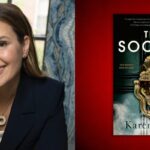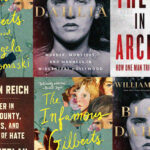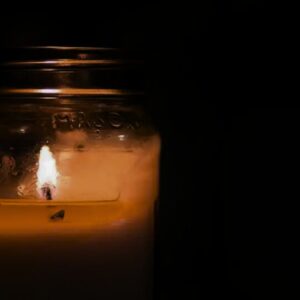
Writers, Protect Your Inner Life
A writing life and a writing career are two separate things
This essay is adapted from remarks Lan Samantha Chang gave at the 2017 One Story Debutante Ball.
While chatting with a dear non-writer friend of mine, I mentioned that I had been thinking a lot about the significance of the inner life. My friend, a medical doctor married to an Ivy League professor and the proud mother of two perfect children, looked puzzled. “What do you mean by an ‘inner life?’” she asked. “When we say a person has a ‘rich inner life,’ isn’t that a way of saying that they look like a mess from the outside?” To her, describing someone as having a rich inner life is a backhanded complement similar to the dodge in Mao’s China where, when trying to describe a young woman who was not physically attractive, people would say, “She is very patriotic.”
My friend’s question illustrates the considerable pressure on people in this society to have a strong and well-defended outer life. In New York, this might include real estate and private schools. In Iowa, this might include regular family dinners made from personally gathered, wild edibles. This pressure began way back with our country’s founders, many of whom believed in the existence of the elect—in the idea that some of us are predestined to salvation. This idea can be logically extended to mean that some of us are not. Because we have no way, when we’re alive, of knowing which of us is predestined, it is important to behave as if.
I’m not trying to blame anyone for wanting or having nice real estate, good-looking children, or a glossy pet. I’m only pointing out that people live in anxiety or even fear about whether their outer lives are enough. It’s easy to believe that if we look good enough, perhaps it might be true that our lives are meaningful or even blessed. Everywhere we go, we can see evidence of this. Walking along the Seine, one sees dozens of people from all over the world standing with their backs to the view, smiling hopefully up at their iPhones. Millions of selfie sticks are purchased out of hope and fear.
Similar anxieties are magnified for new writers who make themselves vulnerable when they share their work with other people, especially after publication of a book. We are taught to believe that the publication of a book is the happy ending to a long journey of working and striving, but according to many new authors with whom I have spoken frequently during this process, publishing is only the beginning of the journey of learning to navigate the world as a public writer, which is the opposite of making art, and it requires learning to protect that inner self from which the art emerged in the first place.
Suddenly the newly minted writer must make laborious efforts to describe what he or she has written. Some read history and theory and science in an effort to find vocabulary that will illuminate their creations. This struggle takes place, I think, because the sincere reaction to making meaningful art is often speechlessness. We make art about what we cannot understand through any other method. The finished product is like a pearl, complete and beautiful, but mute about itself. The writer has given us this piece of his interior and there is frequently no explanation, nothing to be said about it. Often, the writer himself has very little idea of what he has created.
No matter for new authors, who are threatened that their book will fail unless they keep tweeting, giving readings (if they are lucky), reading reviews (if they are lucky), and writing dozens of small articles and Q&As that will stay online forever. Book publication is more public than it has ever been. It is public information that one’s book has or has not been touted as a book to watch out for on certain websites, or has/has not made certain favorite lists, or sales lists, or a hundred end of the year lists. This is not to mention the prize season, which can make the writer lucky enough to be a finalist feel like a runner-up in a beauty pageant. Once, a writer who was a finalist but not the winner of a large prize was walking along a street in Iowa City. A car pulled up, the window rolled down, and a member of the English Department shouted to the writer, “You were robbed!”
Given the opportunity to offer one piece of advice to an emerging writer, I would highlight the urgency of holding onto an inner life. I think often of a wonderful G.K. Chesterton quote given to me by the brilliant Kevin Brockmeier, who is in my opinion one of our most successful writers at protecting the self that he writes from: “But I am concerned rather with an internal than an internal truth; and, as I have already said, the internal truth is almost indescribable. We have to speak of something of which it is the whole point that people do not speak of it; we have not merely to translate from a strange tongue or speech, but from a strange silence.”
So much of my work as a teacher and mentor involves telling writers not to worry about things. Learning not to worry too much is crucial, not only because we have very little control over the book after it leaves our hands but also because this kind of worry is toxic to creativity. We’re living in a culture in which the Wall Street Journal publishes a front-page article about a dermatologist who pops pimples on Youtube, getting 2.4 million subscribers. As guardian of our inner lives, we must protect our inner selves from the Pavlovian part of us that responds, “2.4 million subscribers!” We must instead remember St. Exupery’s words that “what is essential is invisible to the eye.” We must wall off our inner selves from the colonizing part that assesses, quantifies, judges.
The inner life is the child who flourishes in a quiet and non-judgmental space. The inner life has very little currency in a social setting but it is precious. It can’t be found in anyone else, and no one else can see it. It’s a secret. To quote Mrs. Basil E. Frankweiler: “But you should also have days when you allow what is already in you to swell up inside of you until it touches everything. And you can feel it inside you. If you never take time out to let that happen, then you just accumulate facts, and they begin to rattle around inside of you. You can make noise with them, but never really feel anything with them. It’s hollow.”
Hold onto that part of you that first compelled you to start writing. Hold onto that self through the vicissitudes of “career.” A writing life and a writing career are two separate things, and it’s crucial to keep the first. The single essential survival skill for anybody interested in creating art is to learn to defend this inner life from the world. Cherish yourself and wall off an interior room where you’re allowed to forget your published life as a writer. Breathe deeply. Inside this walled-off room, time is different—it is flexible, malleable. We’re allowed bend it, to speed it up, slow it down, to jump forwards and backwards, as our minds do. We can to circle back to our thoughts and memories picking and choosing the most meaningful to us. There’s a hushed, glowing sound, like the sound coming from the inside of a shell.
Lan Samantha Chang
Lan Samantha Chang’s new novel is The Family Chao. She lives in Iowa City.



















